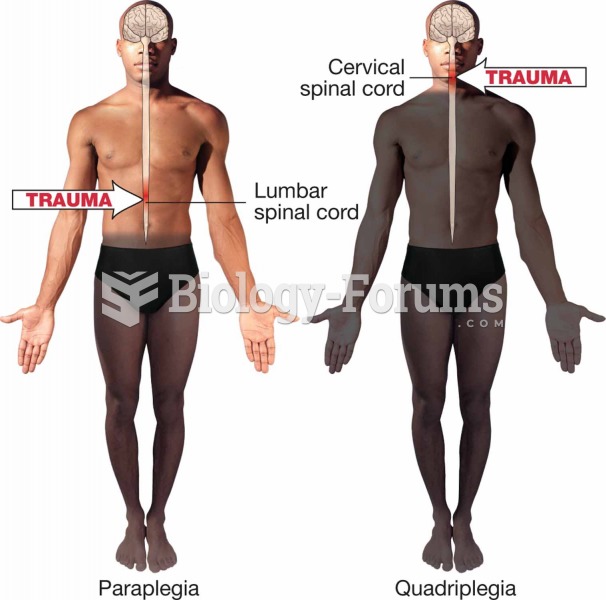|
|
|
Of the estimated 2 million heroin users in the United States, 600,000–800,000 are considered hardcore addicts. Heroin addiction is considered to be one of the hardest addictions to recover from.
The B-complex vitamins and vitamin C are not stored in the body and must be replaced each day.
A headache when you wake up in the morning is indicative of sinusitis. Other symptoms of sinusitis can include fever, weakness, tiredness, a cough that may be more severe at night, and a runny nose or nasal congestion.
According to the American College of Allergy, Asthma & Immunology, more than 50 million Americans have some kind of food allergy. Food allergies affect between 4 and 6% of children, and 4% of adults, according to the CDC. The most common food allergies include shellfish, peanuts, walnuts, fish, eggs, milk, and soy.
The use of salicylates dates back 2,500 years to Hippocrates's recommendation of willow bark (from which a salicylate is derived) as an aid to the pains of childbirth. However, overdosage of salicylates can harm body fluids, electrolytes, the CNS, the GI tract, the ears, the lungs, the blood, the liver, and the kidneys and cause coma or death.
 An electrocardiogram (EKG) wave, a record of the electrical signal as it moves through the conductio
An electrocardiogram (EKG) wave, a record of the electrical signal as it moves through the conductio
 The S-curve in the human vertebral column--a result of the evolution of bipedality--makes humans hig
The S-curve in the human vertebral column--a result of the evolution of bipedality--makes humans hig





